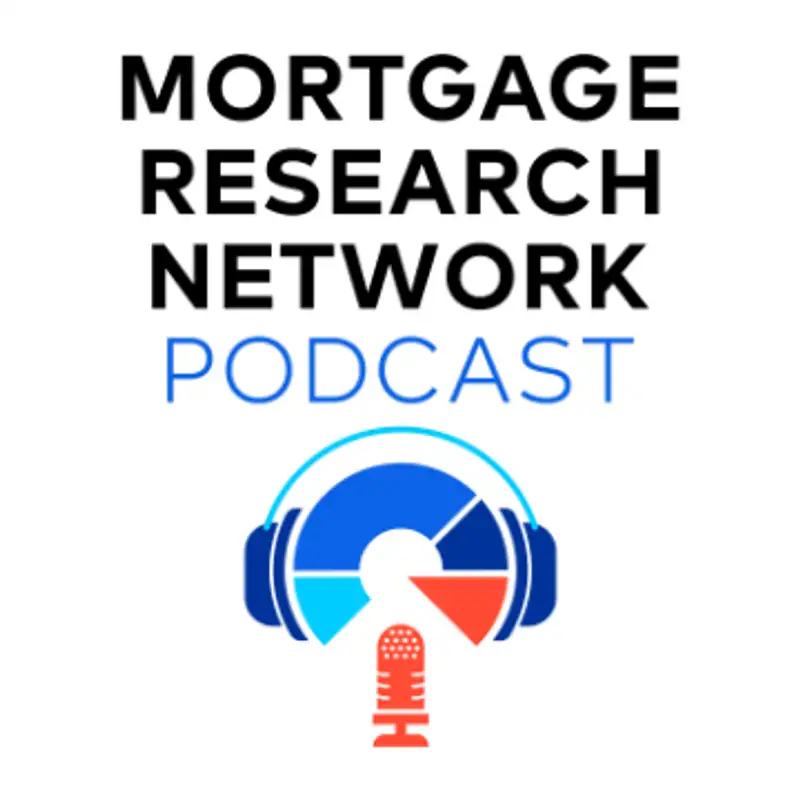Choosing a Lender: Beyond the Shiny Low Rate
Welcome to the Mortgage Research Network Podcast. Just a note that this podcast audio is AI-generated but based on content that was produced by people. And your hosts, Tim and Craig, are real. Without further ado, let's get into today's topic.
I'm your host, Tim Lucas, editor of MortgageResearch.com and a former mortgage professional, and with me is Craig Berry, a mortgage originator with 25 years experience. Craig, recently you told me a story about clients of yours who were really put through the ringer when trying out an online mortgage lender. What was their experience?
Well, a few years ago, I worked with a couple who were finally ready to buy their first home after years of renting. They were sharp, organized, and they did their research, or so they thought.
Like many first-time buyers, they clicked on an ad from a large online lender that advertised a mortgage rate significantly lower than most of the ones they had seen. Within minutes, they were prequalified.
When it came time to lock in their rate, things became a bit… unusual. Their original loan officer disappeared, seemingly replaced by someone new nearly every time they called.
They also noticed additional fees labeled “discount points” on their loan estimate.
And worst of all, unexpected delays caused them to miss their original closing date, forcing them to renegotiate with the seller.
They found my information online and decided to switch lenders. The irony? Their new rate wasn’t all that different. But the peace of mind? Night and day.
So what's really going on behind the scenes with these different types of lenders?
From my own time working as a mortgage broker, later on with a bank, and then as a direct lender, I saw the trade-offs play out daily.
Brokers often shine when buyers have unique needs, such as credit challenges, self-employment, or complex income challenges.
Banks and credit unions, especially if you already have a relationship with them, tend to offer competitive rates and discounted fees.
Direct lenders typically control the entire process, meaning they are part of the application process, underwriting, and funding. They also tend to be more flexible than banks and credit unions, and their availability isn’t limited to “banker’s hours”.
As we all know, low rates are a big draw for homebuyers. They want to shave that $20-$30 per month off their payment. But you have another story about a past client who almost got trapped by one of those ultra-low rate offers.
Oh man, I know who you're talking about. Let's call her Anna to protect her identity. She nearly switched lenders for a rate that was just .375% lower. Sounds great, right? But what they didn't tell her upfront was that she'd have to pay two discount points - that's $7,600 in extra fees! Plus, they only offered a 45-day rate lock when she needed 60 days. Anna ended up coming back. Yes, my rate was slightly higher, but with no points, and personalized updates every few days. She closed on time and even got a thank-you gift from me and my team.
That really shows how these advertised rates can be misleading. What should people actually be looking at?
Focus on the APR - Annual Percentage Rate. It factors in all those sneaky extra costs, including points you might have to pay to buy down the rate. You also need to look at origination fees, third-party closing costs, rate lock terms - the whole package. It's like buying a car - the sticker price isn't the whole story.
What about these big online lenders with their fancy apps and instant approvals?
Funny you mention that - Another past client of mine went with one of those digital lenders promising "10-minute approvals." Sure, he got that quick initial response, but then his file got bounced between departments like a ball in a pinball machine. Never talked to the same person twice.
That sounds incredibly frustrating. How do smaller lenders compare?
When he switched to a regional lender - me - he had one dedicated point of contact who knew his file inside and out. Got consistent updates, could actually reach someone when he had questions - even on weekends sometimes. And here's the kicker - I closed on time.
So what are the essential questions people should ask when shopping for a lender?
Treat it like a job interview - because they're working for you, right? Ask about specific loan programs for your situation, down payment assistance options, their average closing time, and most importantly, how they handle communication throughout the process. If they seem annoyed by your questions or start throwing around industry jargon without explaining things clearly - huge red flag.
That makes so much sense. Any final wisdom for people starting this journey?
Here's the thing - choosing a mortgage lender isn't just about finding the lowest rate. You're looking for a partner who's going to help you navigate one of life's biggest milestones. Someone who's going to be there when challenges arise, who's genuinely invested in your success. Because at the end of the day, peace of mind is worth way more than saving a fraction of a percentage point on your rate.
That's great advice. Thanks for sharing what happens in real life when choosing a lender.
That's about all the time we have for this topic, but we go into even more detail on the site. To learn more, go to Mortgage research.com and type choosing a lender in the search bar. We'll see you next time on the Mortgage Research Network Podcast.
